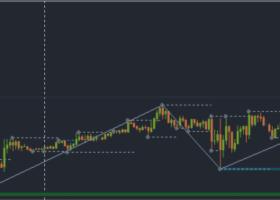After a slump in copper prices, Jiangxi
Copper Co. led declines for raw-material producers sending emerging-market stocks lower. Philippine shares rose to a record.
The MSCI Emerging Markets Index fell 0.4 percent to 956.40 at 2:47 p.m. in Hong Kong.
Jiangxi Copper, China’s largest producer of the industrial commodity, dropped the most in more than two years in Hong Kong sliding 5.9 percent to lead a gauge of developing-nation material stocks to a third day of losses. A Bloomberg gauge of commodity prices fell to a 12-year low.
Hyundai Glovis Co. posted its biggest two-day loss on record.
Stocks in the Philippines, a net oil importer, rose 1.8 percent to an all-time high as crude continued its fall. The peso added 0.2 percent amid bets that slumping crude prices will cut costs for the nation, which imports almost all of its oil needs.
Copper slumped the most since 2009 as a cut in the World Bank’s forecast for global growth this year dimmed the outlook for commodities. Data today is projected to show a gain in U.S. oil inventories.
“Copper historically is an indicator of the health of the
global economy,” Alan Richardson, an investment manager at
Samsung Asset Management Ltd., said in Hong Kong, referring to
China’s move to ease liquidity.
“The decline is consistent with trends we have observed in bond markets and oil.”
Led by consumer discretionary companies, all 10 industry groups in the emerging-markets gauge fell. The measure trades at 11.2-times 12-month projected earnings, compared with a multiple of 15.4 times for the MSCI World Index, according to data compiled by Bloomberg.
Oil fell for a fourth day, while copper sank to below $5,400 a metric ton, before trading around $5,500. The world economy will expand 3 percent in 2015, down from a projection of 3.4 percent in June, according to the World Bank.
The Shanghai Composite Index slid 0.7 percent after rising as much as 1 percent. The Hang Seng China Enterprises Index of mainland companies listed in Hong Kong dropped 0.6 percent.
Taiwan’s Taiex Index fell 0.6 percent while the FTSE Bursa Malaysia KLCI Index and India’s Sensex lost at least 0.3 percent. The Thai baht appreciated 0.2 percent, while currencies in Korean won increased 0.1 percent.



